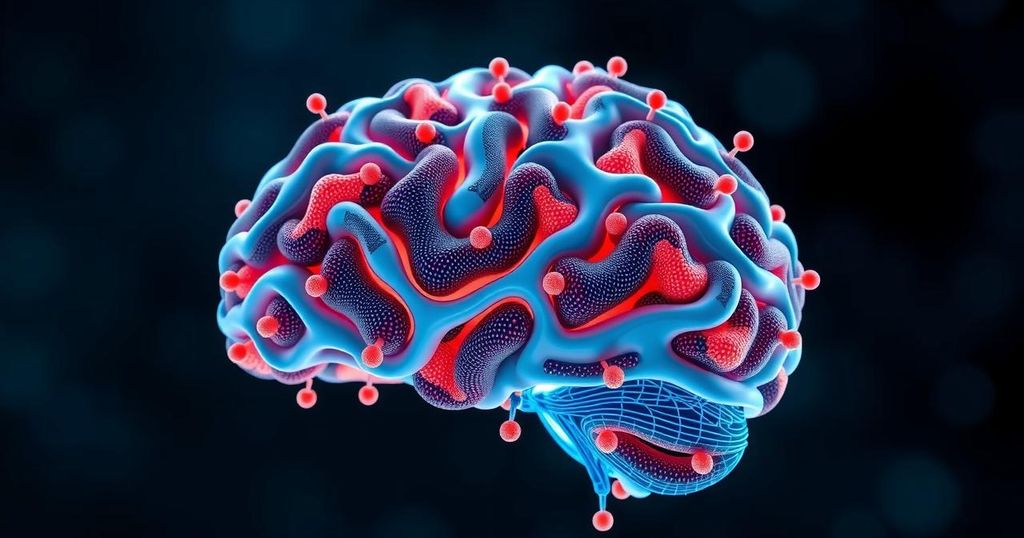IT
CARIBBEAN, COMPUTER SCIENCE, DEPARTMENT OF PSYCHOLOGY, DIGITAL INNOVATION, EC, ECHEVARRIA, FORD, GUILLERMO “ WILLY ” PRADO, HENRI FORD, HONORS, INNOVATION, JOE ECHEVARRIA, LATIN AMERICA, LEONARD M, LEONARD M. MILLER SCHOOL OF MEDICINE, MIAMI, MILLER, MILLER SCHOOL, NORTH AMERICA, RESEARCH, SOUTH FLORIDA, UNITED STATES, UNIVERSITY, UNIVERSITY OF MIAMI, VENTURE CAPITAL
Amina Hassan
0 Comments
University of Miami Invests $30 Million to Enhance Neuroscience and Aging Research
The University of Miami is investing over $30 million in basic science research aimed at advancing neuroscience and aging studies over the next five years. This initiative, led by the Miller School of Medicine, aims to create a program in computational biology and foster collaborations across multiple departments. The investment is expected to attract top scientists and enhance educational opportunities while addressing critical health challenges in the community.
In a bold endeavor to enhance our understanding of the complex interplay between neuroscience and aging, the University of Miami has announced a groundbreaking investment of over $30 million. This funding will predominantly support basic science research over the next five years, ultimately creating a rich program in computational biology at the Leonard M. Miller School of Medicine. The initiative aims to forge interdisciplinary collaborations among various university departments, propelling advancements that could significantly impact patients throughout the South Florida community and beyond.
Joe Echevarria, the University’s CEO and acting president, emphasized that this ambitious investment aligns perfectly with the institution’s mission to deliver top-tier education, innovative research, and exemplary patient care. By focusing on basic science, the university seeks to facilitate fundamental discoveries that not only enhance medical interventions but also open doors for students aspiring to enter vital science and healthcare fields.
As the university sets its sights on revolutionary breakthroughs, Guillermo “Willy” Prado, interim executive vice president for academic affairs, highlighted the importance of this investment in addressing societal challenges through impactful research in neuroscience and aging. The effort will not only attract renowned scientists to the Miller School but further its mission to provide high-quality, patient-centered care.
Dr. Henri Ford, dean of the Miller School, pointed out Miami’s unique position at the crossroads of diverse populations, thereby enhancing the potential for translating research into meaningful clinical practices. Computational biology will take center stage, utilizing its power to model complex biological systems and inform strategies in combating age-related and neurodegenerative diseases.
Dr. Stephen Nimer, executive dean for research at the Miller School, echoed the sentiment of progress, reinforcing that the investment will cultivate a collaborative environment that fosters groundbreaking discoveries aimed at future health improvements. By harnessing advanced computational infrastructures, researchers will craft predictive models that may revolutionize disease risk assessments, drug development, and personalized treatments.
With a vision to empower the next generation of scientists, the University of Miami aims to elevate its status and nurture a culture of innovation that will, in turn, attract investment and advance clinical trials, leading to life-saving interventions.
The University of Miami, celebrated for its exceptional research contributions as a member of the Association of American Universities, has made substantial strides in funding through the National Institutes of Health. This investment emphasizes the critical fields of neuroscience and aging, two of the most pressing challenges facing the U.S. healthcare system today. The initiative aims to enhance the university’s pioneering research capabilities while fostering educational opportunities for students eager to engage in scientific endeavors that impact their communities. With computational biology emerging as a central theme, the program’s goal is to utilize cutting-edge technology and interdisciplinary collaboration to unlock new insights into diseases associated with aging and neurological health. This endeavor not only seeks to bolster the university’s reputation but also to positively influence the health outcomes of diverse populations in the region.
The University of Miami’s commitment to investing over $30 million in neuroscience and aging research marks a pivotal moment for the institution. By enhancing basic science research and fostering interdisciplinary collaboration, this initiative could lay the groundwork for groundbreaking discoveries with significant implications for healthcare. As the Miller School embraces the power of computational biology, its ability to transform scientific understanding and improve patient outcomes becomes not just a possibility, but a promising future waiting to unfold.
Original Source: news.miami.edu




Post Comment